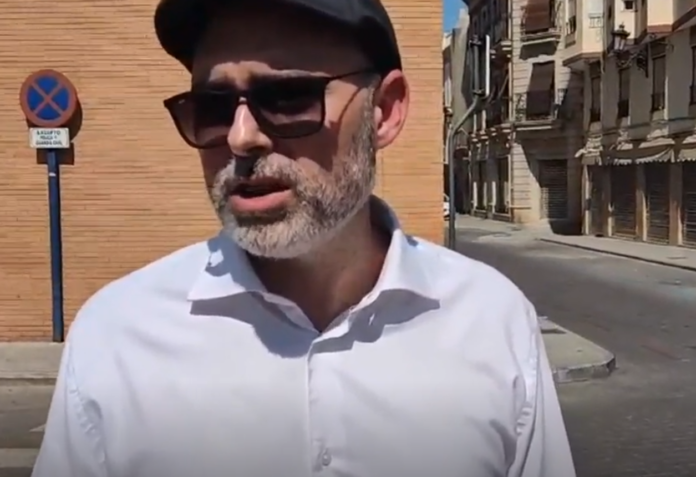The judge of the Investigating Court number 3 of Orihuela decided on Saturday to refuse bail for the Norwegian woman who allegedly killed her husband in the early hours of Friday morning in the house they shared in Orihuela Costa. The decision was taken after the detainee gave a statement for approximately three hours before the duty judge.
The alleged murderer is being investigated as a crime of homicide, as confirmed by sources from the Superior Court of Justice of the Valencian Community.
It was the woman herself who alerted the emergency services of the incident, explaining that after being attacked and assaulted by her husband, both inside and outside the house, she had stabbed him at least three times with a kitchen knife, but only in self-defence, she said.
The events took place in an isolated single-family home on the Orihuela Costa, very close to the border with Torrevieja, in an isolated area with no other nearby buildings or neighbours. Apparently, the couple’s three children, aged ten, eight and six, all witnessed the event.
However, the judge’s decision to send the woman to prison has been harshly criticised by her lawyer, who said at the end of his client’s statement that he does not share “at all” this resolution which was also supported by the Prosecutor’s Office.
The lawyer has argued that the woman “is a victim of gender violence”, given that “she has suffered physical and psychological abuse”, as well as “threats towards her and her children and isolation from her entire family” . The lawyer repeated time and again that “we are in the presence of a prototypical, textbook case of gender violence “. However, he regretted that “the court does not see it that way”.
As for the woman, he pointed out that “she has serious injuries”, as she has suffered considerable damage to one arm, which required an operation, among other minor injuries including bruising and cuts to the face. “It is clear that she had to defend herself,” he said. The lawyer argued that the accused “is a mentally exhausted woman, with three small children, and it was either her life or the life of this aggressive man.”
He stated that sending his client to prison is “a legal scandal that goes against all current movements of the gender perspective and the defence of women, who are really being affected in their daily lives and who are vulnerable.”
The lawyer stressed that his client “could not ask for help because she was being threatened with death, not only to herself but also to her children.” The children, he said, “were attacked” as was the mother, “and we will prove this when we present our case in the coming weeks, when they send us material from Norway,” he added.
The lawyer’s account coincides with the account from the brother of the detainee, who did not hesitate to call his brother-in-law a “psychopath.” According to him, the woman lived “as if she were in prison,” locked in an isolated house with no other buildings around her and where she could not have contact with other people. He also said that the husband constantly threatened to kill two other children she has from a previous relationship and who live in Norway.
The lawyer for the detainee has pointed out that the couple’s three children are all in good health, in a centre where they are receiving care. The lawyer has explained that he has proposed to the judge that they be able to testify on Monday, using a remote camera system, so that they can feel more comfortable, without sharing physical space with strangers. The idea is that the minors, or at least one of them, the oldest, will tell the judge “what they have seen, because they lived through the events and saw them all at first hand.”
He admitted that “it will be difficult for them, because they will have to relive a completely unpleasant and traumatic situation,” but he considered that it will contribute to clarifying the facts. In principle, the couple’s eldest son, aged ten, will testify, “and if his statement is clear, it would be unnecessary for the others, who are younger, to testify.”
The lawyer reiterated that the detainee was a victim of gender violence . “I think that society has to understand this, and what is happening here with justice seems serious to me.” He regretted that “there are people at large who are really criminals, and this lady will now have to spend at least a few days in Fontcalent behind bars,” something that “will not mean any kind of benefit to her.” On the contrary, he pointed out, “she will be surrounded by toxic people, and this will harm her more than help her.”





